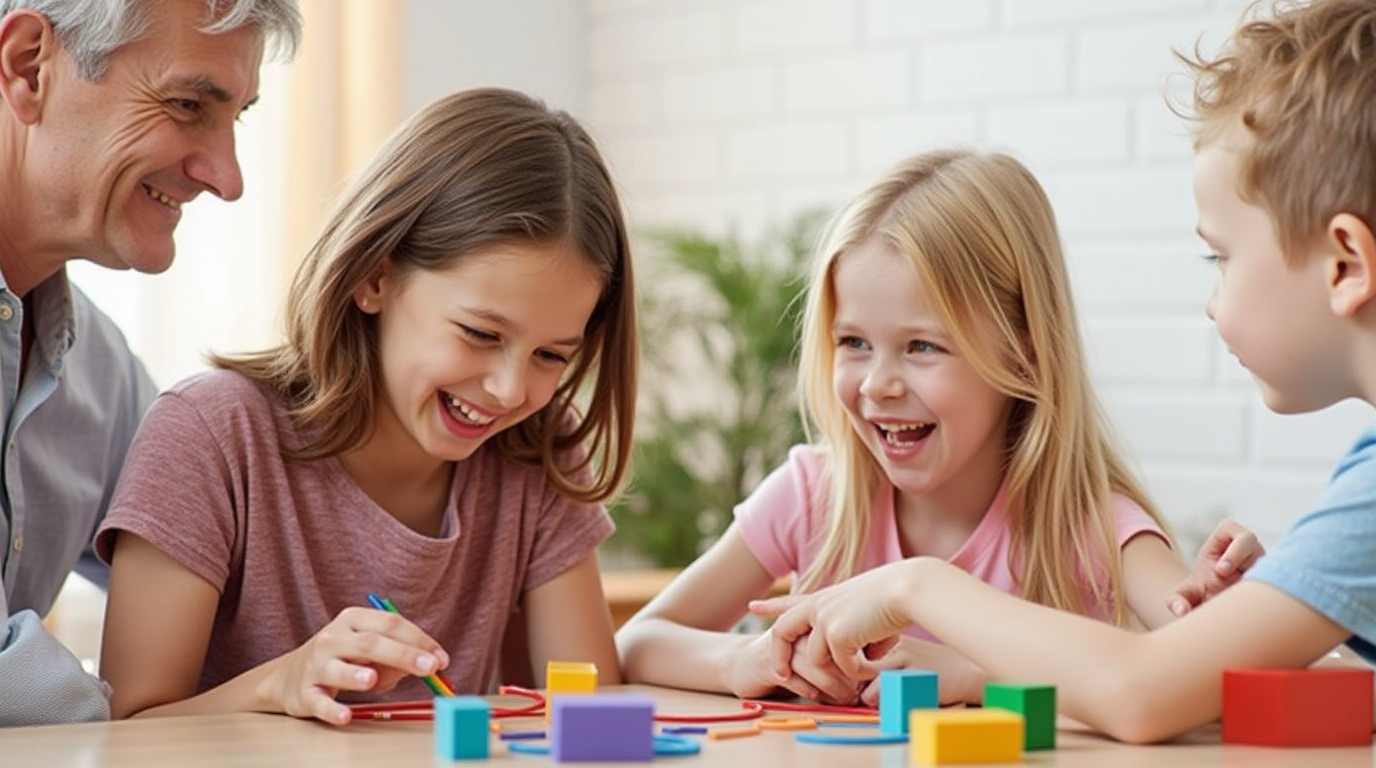Empathy, the ability to understand and share the feelings of others, is a cornerstone of healthy relationships and a key component of a strong family unit. Teaching kids empathy from an early age can foster compassion, strengthen family bonds, and create a supportive environment where everyone feels valued and understood. In today’s fast-paced world, where technology often dominates our interactions, cultivating empathy in children is more crucial than ever. So, how can parents embark on this journey of nurturing empathetic kids and, in turn, building a more cohesive family?
One of the most effective ways to teach empathy is by modeling it in your own behavior. Children are keen observers, and they learn by mimicking their parents and caregivers. When they see you actively listening to a friend’s concerns, offering support to a neighbor, or being considerate of others’ feelings, they absorb these actions as important life lessons. Engage in conversations about emotions, both your own and those of others. Share instances where you’ve felt happy, sad, or frustrated, and encourage your children to do the same. Such open discussions normalize expressing emotions and help children recognize and appreciate the feelings of those around them.
Incorporating empathy-building activities into your family routines can be both fun and educational. Family game nights can be an excellent platform for this. Choose games that encourage teamwork and cooperation, promoting an understanding of each other’s strengths and weaknesses. For instance, a simple game of charades can allow kids to step into someone else’s shoes, literally and metaphorically. Reading books together is another powerful tool. Select stories that explore different emotions, cultures, and experiences, fostering empathy and broadening their understanding of the world.
Empower your children to become active contributors to the family unit by assigning age-appropriate tasks and responsibilities. This not only teaches them essential life skills but also promotes a sense of ownership and consideration for others. For instance, younger children can help set the table, while older siblings can assist in grocery shopping or preparing meals, all of which contribute to a stronger family bond. Acknowledge and celebrate their efforts, reinforcing the idea that everyone’s contributions are valuable and appreciated.
Encourage your children to take an interest in community activities, such as volunteering at local shelters or participating in charitable events. These experiences provide valuable insights into the lives of others and help them appreciate the power of giving back. By engaging in such activities, children learn that the world extends beyond their immediate family, fostering a more comprehensive understanding of empathy.
Empathy is also about understanding differences and respecting diverse perspectives. Help your children appreciate that everyone has unique thoughts, feelings, and beliefs and that these differences should be celebrated. Encourage them to ask questions, learn about different cultures, and engage in respectful dialogues that broaden their horizons.
Building empathy in children is an ongoing process, and it’s essential to recognize that every child will progress at their own pace. The key is to create a supportive and encouraging environment where they feel safe to express themselves and explore their emotions. Remember, a family unit enriched with empathy becomes a sanctuary where every member feels valued, understood, and loved.
